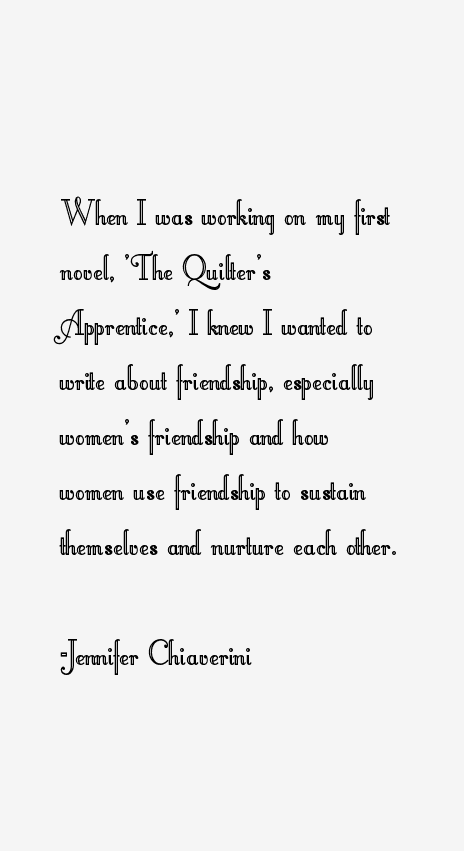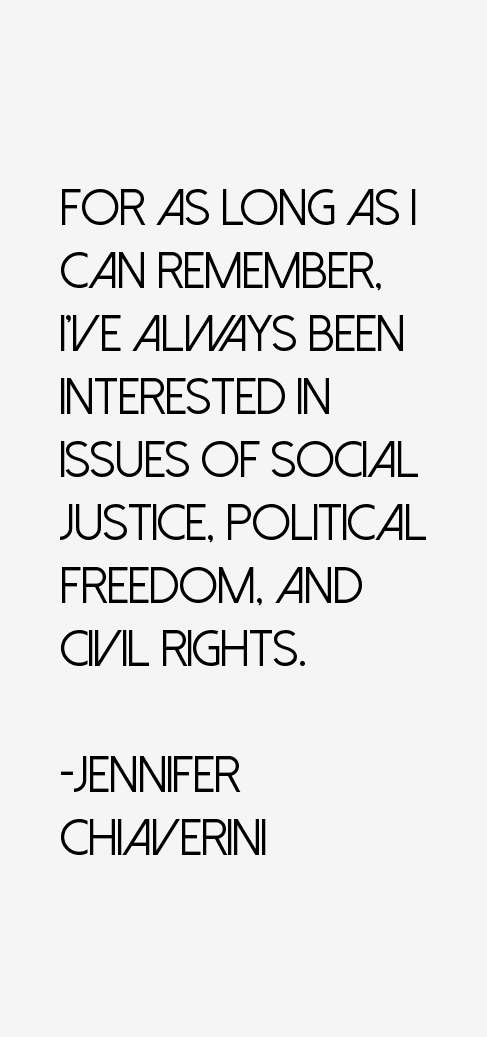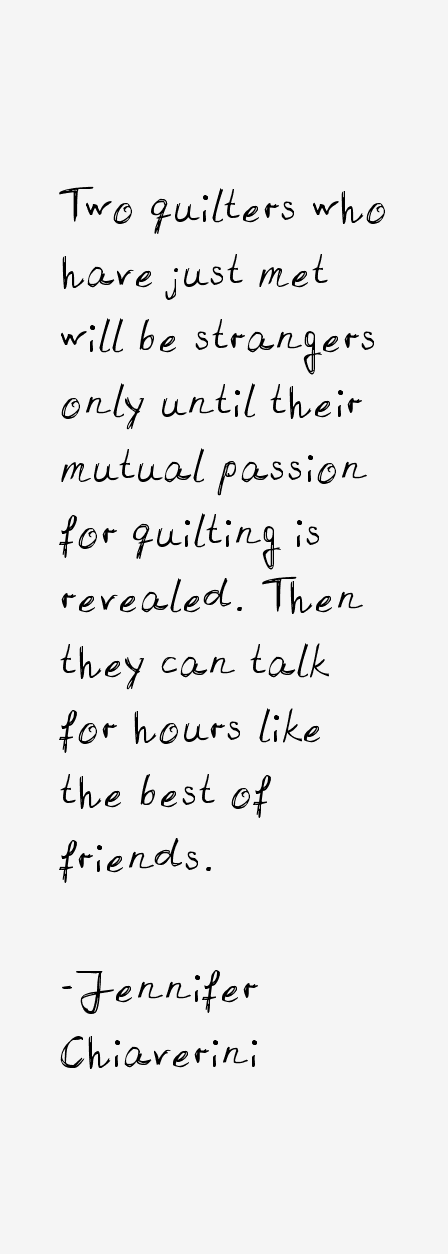Jennifer Chiaverini Quotes & Sayings
13 most famous Jennifer Chiaverini quotes and sayings (artist). These are the first 10 quotes we have.
“Anyone who works on a quilt, who devotes her time, energy, creativity, and passion to that art, learns to value the work of her hands. And as any quilter will tell you, a quilter's quilting friends are some of the dearest, most generous, and most supportive people she knows.”

“When I was working on my first novel, 'The Quilter's Apprentice,' I knew I wanted to write about friendship, especially women's friendship and how women use friendship to sustain themselves and nurture each other.”
“Mary Lincoln provided Elizabeth Keckley with opportunities for social and economic advancement she probably had never imagined during her years as a slave, while Elizabeth offered Mary the loyal, steadfast friendship she craved but had always found so elusive.”

“Elizabeth Keckley was a woman of remarkable strength, courage, perseverance, and dignity. She was exceptionally talented, but also very diligent and ambitious, and together those qualities enabled her to deliver herself from slavery and become a successful businesswoman.”

“For as long as I can remember, I've always been interested in issues of social justice, political freedom, and civil rights.”

“Over the years, I've traveled to many places for inspiration and research, including Pennsylvania, Ohio, South Carolina, California, and Hawaii.”

“Two quilters who have just met will be strangers only until their mutual passion for quilting is revealed. Then they can talk for hours like the best of friends.”

“I've always wanted to be a writer. Ever since I learned to read, I've wanted to share stories with others the way my favorite writers shared their stories with me.”
“In my contemporary stories, I write about today's quilters, inventive techniques they use, and how technology has influenced their art. Novels set in the past let me have fun researching patterns that were popular and fabrics and tools available to quilters through history.”
“I wanted to write about women and their work, and about valuing the work we, as women, choose to do. Too many women I knew disparaged their work. Many working mothers thought they ought to be home with their children instead, so they carried around too much guilt to enjoy much job satisfaction.”
Jennifer Chiaverini Quotes Rating
No Ratings Yet
Leave A Comment
























